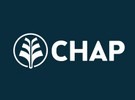Scientists have refined a transformational process that allows nitrate to be captured from drinking water for use in agriculture as a liquid fertilizer.
The NTPlus project, financed by Innovate UK’s Sustainable Innovation Fund, was led by Agua DB Ltd in collaboration with Carbon Data Resources Ltd and Agri-Tech Innovation Centre, CHAP. It focuses on how nitrates can be efficiently removed from drinking water for use as a resource, rather than disposal as waste. In doing so, this can decrease agriculture’s dependence on the carbon-intensive Haber-Bosch and Mannheim fertilizer manufacturing processes, assisting the industry in its drive towards net zero.
CHAP Innovation Network Lead, Dr. Harry Langford, said: “Treatment of abstracted groundwater to remove excess nitrate in order to meet important drinking water standards is on the increase. Unfortunately, this treatment process produces a ‘brine nitrate’ waste stream, often tankered to treatment works, bringing a further carbon footprint cost.
“At the same time, we are seeing an increase in the need for crop irrigation, which is how the opportunity for this project came about - can we re-use nutrients from diffuse pollution as a smart, variable-rate liquid fertilizer and irrigation product, that also helps to reduce the greenhouse gas emissions associated with managing agricultural soils?”
Reduced costs
The existing method for extraction uses ion exchange to remove nitrate, using a sodium chloride solution as a liquid rinse during the process. This requires 10 tonnes of sodium chloride salt to remove 1 tonne of nitrate.
By using Agua DB Ltd’s patented processing technologies, the project has refined nitrate extraction to enable the use of potassium chloride salt as the rinse, increasing efficiency from 10% to >90%. Not only is the amount of salt being reduced, but so is the carbon footprint and logistics costs. The end product is a soft-water solution fertilizer product containing all four principal nutrients – nitrogen, potassium, phosphate, and sulfur, with a low chloride content.
The efficacy of the product has been tested during a validation trial of Red Russian Kale at CHAP’s partner, Stockbridge Technology Centre, to explore the use of the solution as a hydroponic feed within a vertical farming system.
Dr. Langford added: “Compared to the control, which was treated with conventional liquid feed, the NTPlus crop showed good germination, root structure, and overall form. The nutritional profile was also favorable.
Smart irrigation
“Although this was demonstrated within a hydroponic-based controlled environment agriculture setting, the fertilizer could be trialed further for use as a variable-rate product within field agriculture, as it’s particularly suited to row crops.
“Smart irrigation is a sector forecast to grow by 17% per annum by 2025, and variable rate applications are recognized as a best practice offering considerable yield benefits. All in all, the fact this is recycled from a by-product, improves the processing methods used, and could reduce agriculture’s reliance on carbon-intensive fertilizer production, makes for a very promising development for our industry.”
Agua DB is now in discussions with water companies to assess opportunities to modify their nitrate treatment plants in line with the outcomes of the NTPlus project. It is hoped that additional field trials will also take place and relevant exemption certifications for its use obtained.
Mike Waite, Director of Agua DB Ltd, said: “Simply, we’ve developed the first ‘electric vehicle’ of nitrate removal. Everything that’s gone before can be considered a ‘diesel engine car’. This, along with some other really great developments in agri-tech, can really help farmers move towards net zero and build in resilience to climate change.
“It also helps water companies with their own commitments to net-zero and, by helping their farming neighbors, they too benefit from the gains the farmer makes. We’re really looking forward to working with the water companies, farmers, CHAP, and Carbon Data Resources to demonstrate this at a large scale in the very near future”

 CHAP
CHAP